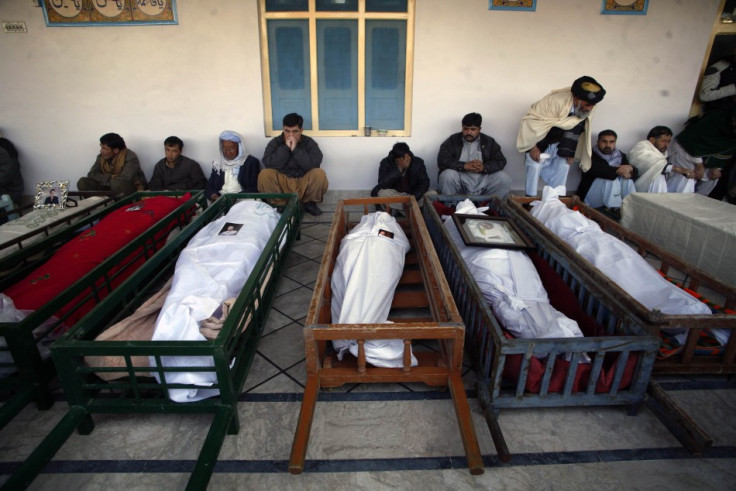Quetta Attacks: Protesters Refuse to Bury Victims, Seek Army Security
Protesters say civil administration has failed

Hundreds of protesters, demanding that the army provide security for the Shiite community, are holding a sit-in refusing to bury the victims of the Quetta twin blasts in Pakistan.
Quetta, the provincial capital of Balochistan, came under devastating bomb attacks which are widely believed to have been carried out by Sunni extremists.
More than 50 bodies of the victims were carried in a procession through the main streets of Quetta. The campaigners burnt tyres and blocked several roads in the south-western city of Pakistan.
A day after the deadly explosions, the protesters took to the streets urging that the army take control of the province in a bid to end terrorist attacks.
Protesters held banners criticising the lack of security in Balochistan province as there is a spike in targeted killings by Sunni extremist groups.
Prominent political outfits in the region have also supported the protests against what they see as failure of the civil administration to provide security.
They accused the provincial government of failing to protect citizens and demanded handing over of the administration to the army. So deep appears to be the anger against the government that protesters say they are determined to carry on their campaign until the army takes over control.
"We will not bury dead bodies of our beloved ones until the Army takes the control of Quetta city. This is barbarism against the Hazara community and we strongly condemn it. The rulers have no more right to remain in power," protesters told the Nation.
The banned Sunni extremist group Lashkar-e-Jhangvi has claimed responsibility for the attack.
The provincial Balochistan government has announced a three-day mourning for the victims.
Pakistani Prime Minister Raja Pervez Ashraf gave no hint of handing over the administration to the army even as he urged Balochistan governor Zulfikar Magsi to take necessary steps to protect the people.
© Copyright IBTimes 2025. All rights reserved.






















